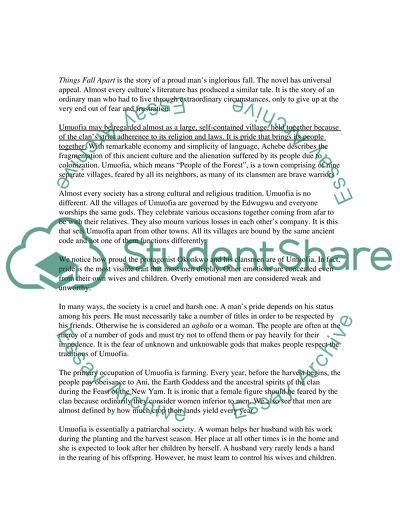Cite this document
(“Things Fall Apart Essay Example | Topics and Well Written Essays - 500 words”, n.d.)
Things Fall Apart Essay Example | Topics and Well Written Essays - 500 words. Retrieved from https://studentshare.org/literature/1523545-things-fall-apart-essay
Things Fall Apart Essay Example | Topics and Well Written Essays - 500 words. Retrieved from https://studentshare.org/literature/1523545-things-fall-apart-essay
(Things Fall Apart Essay Example | Topics and Well Written Essays - 500 Words)
Things Fall Apart Essay Example | Topics and Well Written Essays - 500 Words. https://studentshare.org/literature/1523545-things-fall-apart-essay.
Things Fall Apart Essay Example | Topics and Well Written Essays - 500 Words. https://studentshare.org/literature/1523545-things-fall-apart-essay.
“Things Fall Apart Essay Example | Topics and Well Written Essays - 500 Words”, n.d. https://studentshare.org/literature/1523545-things-fall-apart-essay.


